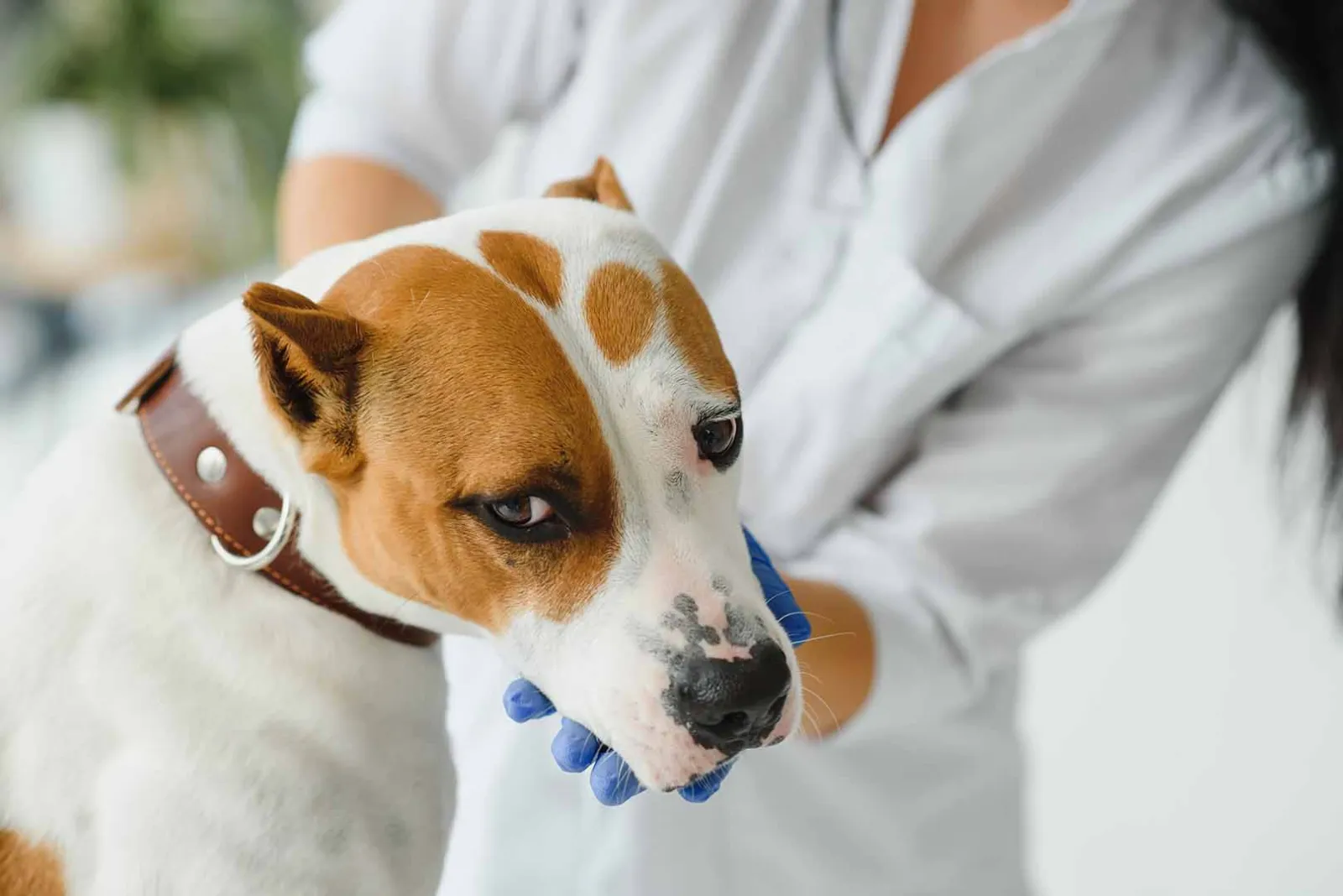What Are The Stages Of Parvo In Dogs?

- Understand how canine parvovirus progresses and its symptoms.
- Learn how the virus damages the GI tract and weakens the immune system.
- Discover the importance of the parvovirus vaccine and Parvo Treatment options.
Canine parvovirus is a highly contagious and potentially fatal virus that primarily affects puppies and unvaccinated dogs. This aggressive virus attacks the GI tract, causing severe vomiting, diarrhea, and dehydration. Without immediate Parvo Treatment, the disease can quickly become life-threatening.
The best way to prevent infection is through the parvovirus vaccine, but understanding the stages of the virus can help pet owners recognize symptoms early and seek veterinary care as soon as possible.
Stage 1: Exposure to Canine Parvovirus
Dogs become infected with canine parvovirus through direct contact with contaminated feces, infected dogs, or contaminated surfaces like bedding, food bowls, and soil. The virus is highly durable and can persist in the environment for months.
Once a dog is exposed, the virus enters the body and begins attacking rapidly dividing cells, particularly in the bone marrow and GI tract. However, symptoms do not appear immediately.
Stage 2: Incubation Period (3-7 Days)
After exposure, canine parvovirus undergoes an incubation period lasting between three and seven days. During this time, the virus multiplies within the body, spreading through the bloodstream.
At this stage, dogs may not show visible symptoms, but the virus is already attacking white blood cells, weakening the immune system and preparing to invade the GI tract. This is a critical period because the virus is actively spreading before symptoms appear.
Stage 3: Initial Symptoms Appear
Approximately four to five days after exposure, the first noticeable symptoms of canine parvovirus begin to appear.
These may include:
- Lethargy and loss of appetite
- Fever or low body temperature
- Depression and lack of energy
- Vomiting and mild diarrhea
Since these early signs can resemble other illnesses, pet owners may not immediately suspect canine parvovirus. However, recognizing these symptoms early and consulting a veterinarian can improve the chances of successful Parvo Treatment.
Stage 4: Severe Gastrointestinal Symptoms
As the virus progresses, it aggressively attacks the GI tract, leading to severe symptoms such as:
- Persistent vomiting and bloody diarrhea
- Extreme dehydration and electrolyte imbalances
- Severe abdominal pain and bloating
- Rapid weight loss
The damage to the GI tract allows bacteria from the intestines to enter the bloodstream, increasing the risk of sepsis. This stage is the most dangerous and requires immediate medical intervention. Without prompt Parvo Treatment, the condition can become fatal.
Stage 5: Critical Period and Recovery
With intensive Parvo Treatment, some dogs begin showing improvement within 3-5 days.
Treatment typically includes:
- Intravenous fluids to combat dehydration
- Electrolyte therapy to restore balance
- Anti-nausea medications to control vomiting
- Antibiotics to prevent secondary infections
Dogs that survive the first 5-7 days of severe symptoms have a much higher chance of full recovery. However, recovery can take several weeks, and the dog may need ongoing supportive care, including a specialized diet to restore GI tract health.
The Importance of the Parvovirus Vaccine
The best way to protect your dog from canine parvovirus is through the parvovirus vaccine. Puppies should receive their first vaccination at six to eight weeks of age, followed by booster shots every three to four weeks until they are at least 16 weeks old.
Why the Parvovirus Vaccine Is Essential:
- Prevents infection: Vaccinated dogs have a significantly lower risk of contracting canine parvovirus.
- Reduces severity: If an exposed dog is partially vaccinated, symptoms may be less severe.
- Protects the community: Keeping your dog vaccinated helps prevent the spread of the virus to other pets.
For adult dogs, annual boosters or titers (antibody level tests) help ensure continued immunity against canine parvovirus.
When to Seek Veterinary Care
Canine parvovirus is a medical emergency. If your dog exhibits any symptoms of infection, seek veterinary care immediately. Early intervention is crucial for successful Parvo Treatment and improving survival rates.
Signs that require urgent veterinary attention include:
- Severe vomiting and diarrhea (especially if bloody)
- Extreme lethargy or collapse
- Inability to keep water or food down
- Rapid weight loss and signs of dehydration
Prompt hospitalization and aggressive treatment can make the difference between life and death.
Canine parvovirus is a devastating disease that primarily affects young and unvaccinated dogs. The virus aggressively attacks the GI tract, leading to life-threatening dehydration and systemic infections. However, early recognition of symptoms and immediate Parvo Treatment can increase survival rates.
The most effective way to protect your pet is through the parvovirus vaccine, which prevents infection and helps control the spread of this highly contagious virus. By staying informed and proactive, pet owners can safeguard their dogs from the dangers of canine parvovirus.
Forever Vets is committed to providing expert veterinary care and preventive solutions to keep your pets safe and healthy. If you have concerns about canine parvovirus or need to schedule a parvovirus vaccine, our team is here to help.


